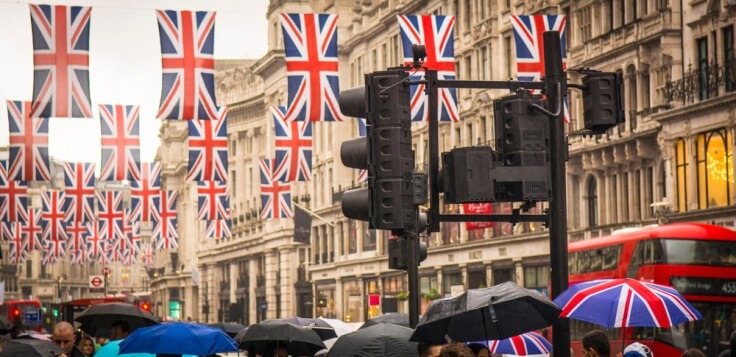
Britain: BoE Pressured by Economic Slowdown
The Bank of England appears to be pressured by global economic concerns on top of the still blurry Brexit outlook. As such, the BoE is expected to cut economic guidance for Britain’s economy.
However, the BoE still intends to raise interest rates, a stance very much different from that of its United States counterpart, the Federal Reserve. This plan is expected to go through as long as Britain sidesteps the turbulence of a no-deal, hard Brexit from the European Union.
Based on a survey among economists, rate-setters would be voting unanimously to leave their benchmark interest rate at 0.75 percent unmoved, while waiting for the elusive Brexit deal.
“The Monetary Policy Committee (MPC) is clearly in ‘wait and see’ mode,” said an economist from a forecasting firm.
Prime Minister Theresa May is currently urging EU officials for concessions over a crucial segment of the Brexit deal she sealed with them in 2018. There is still the potential for a no-deal Brexit on the 29th of March.
Meanwhile, the US central bank has already provided cues that its three-year interest rate raising is to be paused, the euro zone economy slowdown has already entered the European Central Bank’s radar, and China is planning to bolster its economy, which has seen the slowest pace of growth in 28 years last year.
The BoE also took those developments in consideration. However, market analysts and economists do not expect bank governor Mark Carney, along with his colleagues, to back down on his plan to raise interest rates once the country has sealed a workable Brexit deal.
Changes in Guidance
Meanwhile, not everybody buy into the notion that the BoE will be able to raise their interest rates. Investors are only pricing in a 50-50 chance of rate increase this year as they await the bank’s new economic growth and inflation forecasts and interest rate decision.
The BoE said last November that it viewed inflation to stay just a tad higher than its 2 percent target over the next couple of years.
Apart from that, it also expected the economy to expand by 1.7 percent per year from 2019 to 2021. At present, this forecast is widely expected to be revised down against a backdrop of global economic slowdown.
On the other hand, wages are now rising to their fastest levels in a decade. Finance Minister Philip Hammond’s decision to take a less hands-on approach on public spending is also expected to have some influence on the BoE’s considerations.
The combination of those is expected to send more hawkish signals even though other peers are turning more dovish. There is also the matter of inflationary “speed limit” of the British economy to consider.
The BoE said that there’s a chance it may raise rates if Britain walks away from the EU without a deal. However, most economists believe it would probably trim rates to cushion the blow to the economy.




